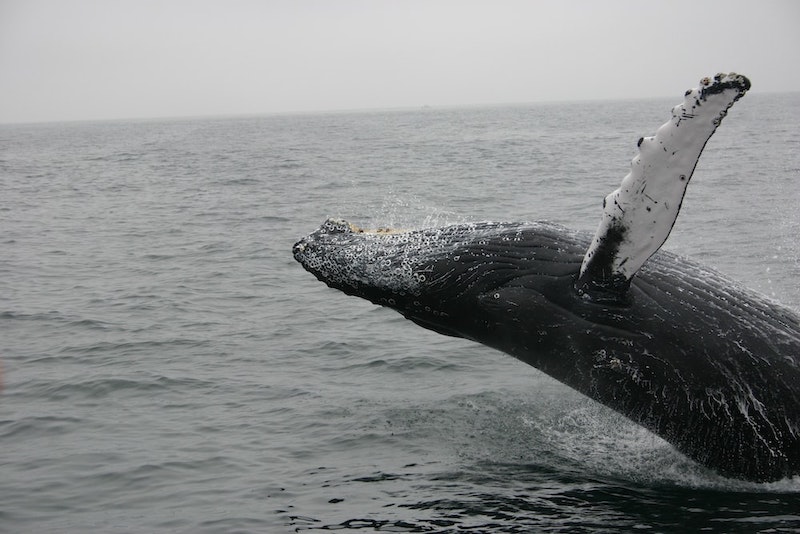In the intricate world of international trade agreements, where economic interests often take centre stage, a surprising twist has occurred that underscores the growing influence of environmental concerns. The Indo-Pacific Economic Framework (IPEF), a groundbreaking trade pact involving thirteen nations, has encountered an unexpected obstacle—an anti-whaling provision that has thrown the entire agreement into uncertainty. This clash of interests between economic cooperation and environmental conservation serves as a stark reminder of the complexities surrounding global diplomacy, shedding light on the delicate balance between pursuing economic growth and safeguarding the planet’s natural resources. As nations grapple with these conflicting priorities, the fate of the IPEF hangs in the balance, embodying the broader challenge of harmonizing economic aspirations with environmental imperatives on the world stage.
The Indo-Pacific Economic Framework
The Indo-Pacific Economic Framework (IPEF) has emerged as a significant trade pact involving thirteen countries, aiming to forge economic collaboration and shared benefits among nations bordering the Pacific Ocean. Announced in Tokyo in May 2022, the IPEF brings together nations such as Australia, India, Japan, the United States, and more, constituting a substantial 40% of the world’s Gross Domestic Product (GDP). Beyond its economic implications, the IPEF assumes geopolitical importance by strengthening the United States’ presence in the Asia-Pacific region amid rising tensions with China. It aims to standardize labour rights, prioritize clean energy, and enhance global supply chains.
The Whaling Conundrum and the Anti-Whaling Provision
However, the IPEF’s progress has hit an unexpected roadblock—environmental concerns, particularly the issue of whaling, have cast doubt on its future. Central to this conundrum is the anti-whaling language embedded within the agreement, designed to curb the practice. Japan, a vital participant in the IPEF, has categorically labelled this provision a “deal-breaker,” throwing the trade agreement’s prospects into uncertainty.
Japan’s connection to whaling dates back decades. Despite the global shift away from whaling due to conservation concerns, Japan continued this practice under the guise of scientific research, often followed by commercial sales of whale meat. While being a longstanding member of the International Whaling Commission (IWC), Japan’s actions sparked international criticism and tension. This reached a turning point in 2018 when Japan withdrew from the IWC, signalling its intention to expand its domestic whaling industry. This decision underscored Japan’s resolve to uphold its traditions and assert control over its resources, even if it clashed with global conservation efforts.
Embracing Environmental Priorities Amidst Economic Ambitions
Amidst the fervour of negotiations and geopolitical dynamics, a silver lining emerges from the impasse surrounding the anti-whaling provision in the IPEF. This discord underscores a significant shift in global consciousness—an increasing willingness to prioritize environmental concerns over immediate economic gains.
The potential removal of the anti-whaling language to salvage the trade agreement brings forth a powerful narrative. It signifies that nations are not only recognizing the urgency of environmental preservation but also acknowledging that safeguarding our planet’s biodiversity and ecosystems carries profound importance. This shift stands as a testament to the growing influence of environmental movements, even in the face of lucrative economic opportunities.
This willingness to challenge economic benefits in favour of environmental protection is a heartening development. It showcases a collective recognition that the consequences of unchecked environmental degradation transcend short-term profits. This acknowledgement reveals a deeper understanding that preserving the world’s natural resources is not merely an option but a responsibility that transcends national boundaries.
While diplomatic complexities persist and nations grapple with reconciling their interests, the fact that environmental considerations are at the forefront of such negotiations is a step forward. It’s a realization that policies and agreements must harmonize with the long-term welfare of our planet and its inhabitants. This paradigm shift aligns with a global sentiment that seeks to place the environment on equal footing with economic prosperity.
In conclusion, the impasse over the anti-whaling provision in the IPEF serves as a poignant example of prioritizing environmental values despite the allure of economic gains. It signifies that nations are increasingly willing to stand up for the preservation of the planet’s resources, even when faced with lucrative trade opportunities. As environmental considerations gain prominence in international discourse, they pave the way for a future where the pursuit of economic growth is balanced by a commitment to safeguarding the environment for generations to come.


